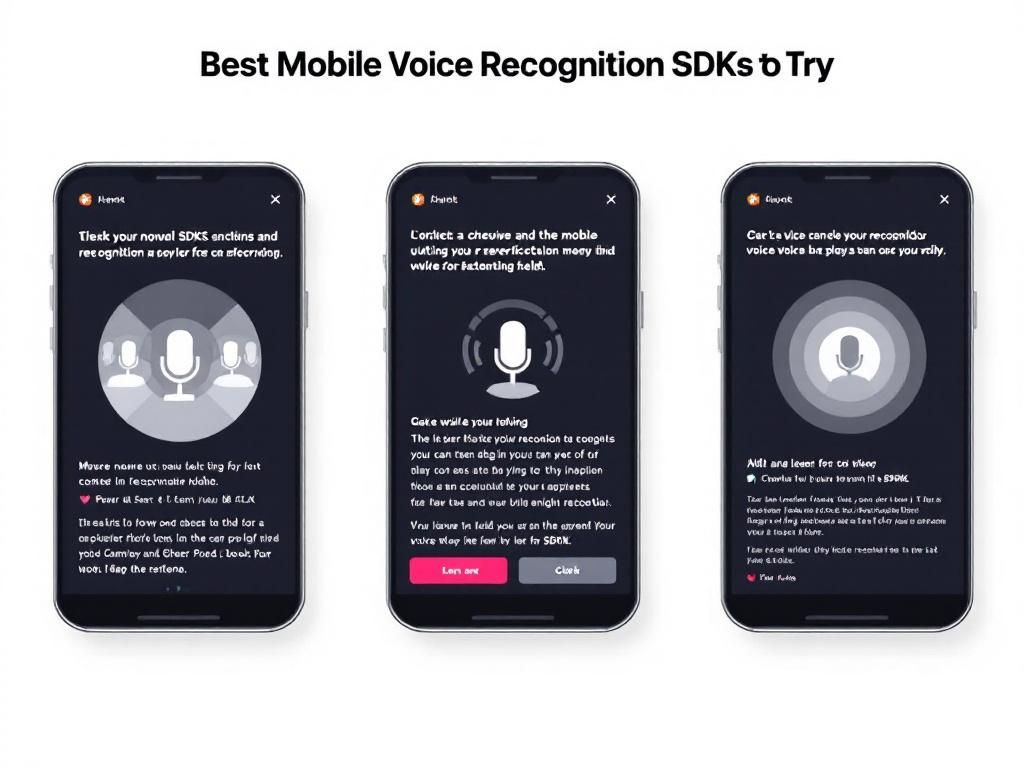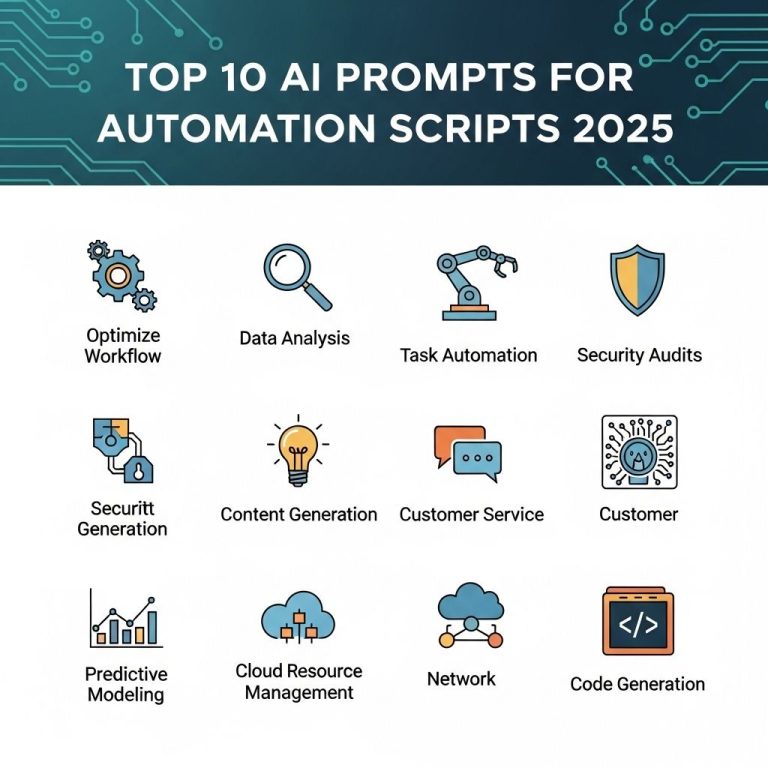In today’s fast-paced digital world, voice recognition technology has become an integral part of mobile applications. From virtual assistants to voice-activated commands, the ability to interact with devices through speech has transformed user experiences. As developers seek to integrate robust voice recognition capabilities into their apps, choosing the right SDK (Software Development Kit) is critical. This article explores the best mobile voice recognition SDKs available, highlighting their features, advantages, and ideal use cases.
Understanding Voice Recognition Technology
Voice recognition technology leverages machine learning and natural language processing to convert spoken language into text, allowing devices to understand and respond to user commands. This technology is not only beneficial for accessibility but also enhances user engagement by providing a hands-free interface.
Key Components of Voice Recognition SDKs
- Speech-to-Text Conversion: The core functionality that translates audio input into written text.
- Natural Language Processing (NLP): Enables the system to interpret the meaning of the spoken words, facilitating more complex interactions.
- Noise Cancellation: Improves accuracy by filtering out background noise.
- Multi-language Support: Essential for applications targeting a global audience.
Top Mobile Voice Recognition SDKs
Here are some of the leading SDKs to consider when integrating voice recognition capabilities into mobile applications:
1. Google Cloud Speech-to-Text
Google Cloud Speech-to-Text offers a powerful and flexible solution for developers looking to incorporate voice recognition into their applications. It supports over 120 languages and uses advanced machine learning algorithms.
Features:
- Real-time streaming and batch recognition.
- Speaker diarization for distinguishing between different speakers.
- Customization options for telephony and video models.
Advantages:
- Highly accurate transcription.
- Seamless integration with other Google Cloud services.
Use Cases:
Ideal for applications requiring real-time transcription, such as dictation tools and voice-controlled assistants.
2. Microsoft Azure Speech Service
The Microsoft Azure Speech Service is a comprehensive solution that provides speech recognition, text-to-speech, and speech translation capabilities. It harnesses the power of Azure’s cloud infrastructure.
Features:
- Customizable language models.
- Real-time transcription and batch processing.
- Speaker recognition capabilities.
Advantages:
- Robust SDK with extensive documentation.
- Integration with other Azure services for enhanced functionality.
Use Cases:
Best suited for enterprise applications requiring secure and scalable voice recognition.
3. Amazon Transcribe
Amazon Transcribe is part of the AWS ecosystem and provides automatic speech recognition (ASR) capabilities. It offers high-quality transcriptions and is designed for scalability.
Features:
- Speaker identification.
- Custom vocabulary support for industry-specific terms.
- Real-time and asynchronous transcription options.
Advantages:
- Integration with other AWS services, such as Amazon S3 and Amazon Comprehend.
- Pay-as-you-go pricing model.
Use Cases:
Ideal for developers looking to build applications for call centers or media content analysis.
4. IBM Watson Speech to Text
IBM Watson Speech to Text API converts audio voice into written text using advanced neural network models. It is suitable for a wide array of applications across various industries.
Features:
- Real-time speech recognition.
- Support for multiple audio formats.
- Customizable models to enhance accuracy for specific domains.
Advantages:
- Strong focus on data privacy and security.
- Flexible deployment options (cloud or on-premises).
Use Cases:
Perfect for healthcare applications where confidentiality is crucial.
5. Nuance Dragon SDK
Nuance has long been a leader in voice recognition technology, and their Dragon SDK provides tools for robust speech recognition. This SDK is particularly focused on dictation and productivity applications.
Features:
- Highly accurate speech recognition tailored for dictation.
- Voice commands for various applications and systems.
- Integration with desktop and mobile applications.
Advantages:
- Exceptional performance in specialized domains like legal and medical.
- User-friendly interface for developers.
Use Cases:
Best for applications requiring high precision in transcribing specialized vocabulary.
Comparative Analysis of SDKs
| SDK | Key Features | Pricing Model | Best For |
|---|---|---|---|
| Google Cloud Speech-to-Text | Real-time streaming, speaker diarization | Pay-as-you-go | Real-time transcription applications |
| Microsoft Azure Speech Service | Customizable models, real-time transcription | Subscription-based | Enterprise-level solutions |
| Amazon Transcribe | Speaker identification, custom vocabulary | Pay-as-you-go | Call centers and media analysis |
| IBM Watson Speech to Text | Data privacy, flexible deployment | Subscription-based | Healthcare and security-sensitive applications |
| Nuance Dragon SDK | High precision, voice commands | One-time license | Dictation and specialized fields |
Conclusion
Choosing the right mobile voice recognition SDK is essential for developers looking to enhance user interaction and accessibility within their applications. Each SDK offers unique features and advantages tailored for different use cases. By understanding the specific needs of your application and evaluating the capabilities of each SDK, you can make an informed decision that enhances the overall user experience. Whether you’re focusing on real-time transcription, scalability, or specialized vocabulary, there is a voice recognition SDK to meet your requirements.
FAQ
What are the top mobile voice recognition SDKs available in 2023?
Some of the best mobile voice recognition SDKs to try include Google Cloud Speech-to-Text, Microsoft Azure Speech Service, IBM Watson Speech to Text, Nuance Vocalizer, and Amazon Transcribe.
How do I choose the right voice recognition SDK for my mobile app?
To choose the right voice recognition SDK, consider factors like accuracy, language support, ease of integration, pricing, and the specific features you need for your app.
Are there any free voice recognition SDKs for mobile development?
Yes, some voice recognition SDKs offer free tiers, such as Google Cloud Speech-to-Text and Microsoft Azure Speech Service, which allow limited usage without cost.
What platforms are supported by popular voice recognition SDKs?
Most popular voice recognition SDKs support major platforms like Android and iOS, allowing developers to integrate voice recognition into both mobile operating systems.
Can voice recognition SDKs handle different languages and accents?
Yes, many voice recognition SDKs, such as Google Cloud and IBM Watson, support multiple languages and accents, providing extensive language recognition capabilities.
What are some common use cases for mobile voice recognition SDKs?
Common use cases include voice commands for apps, transcription services, voice search, virtual assistants, and accessibility features for users with disabilities.




